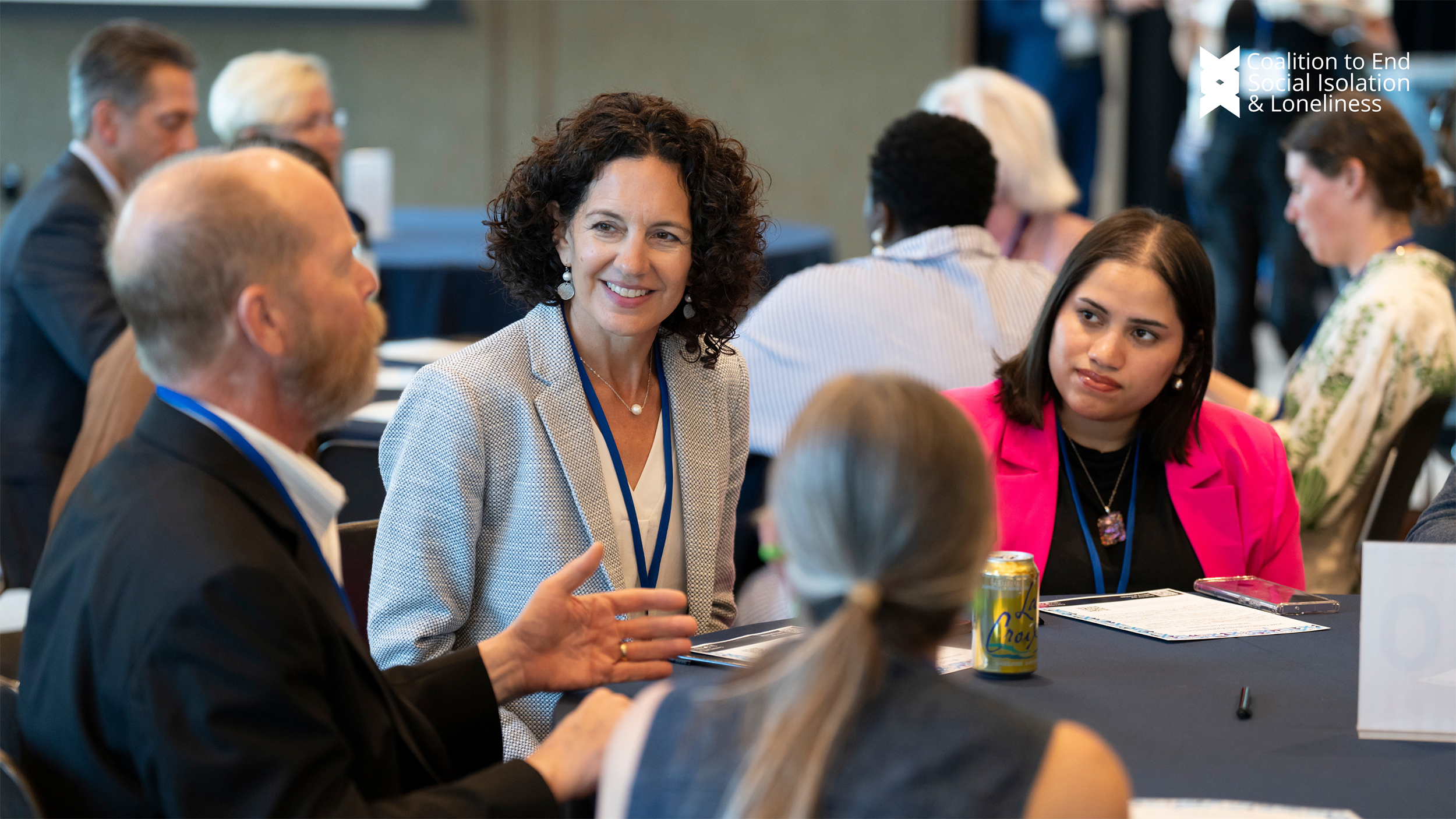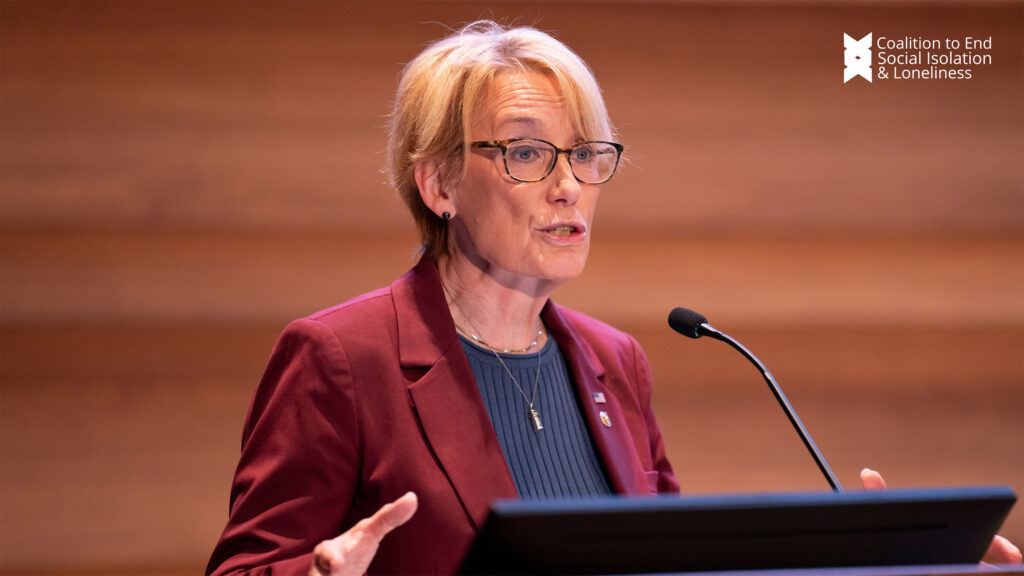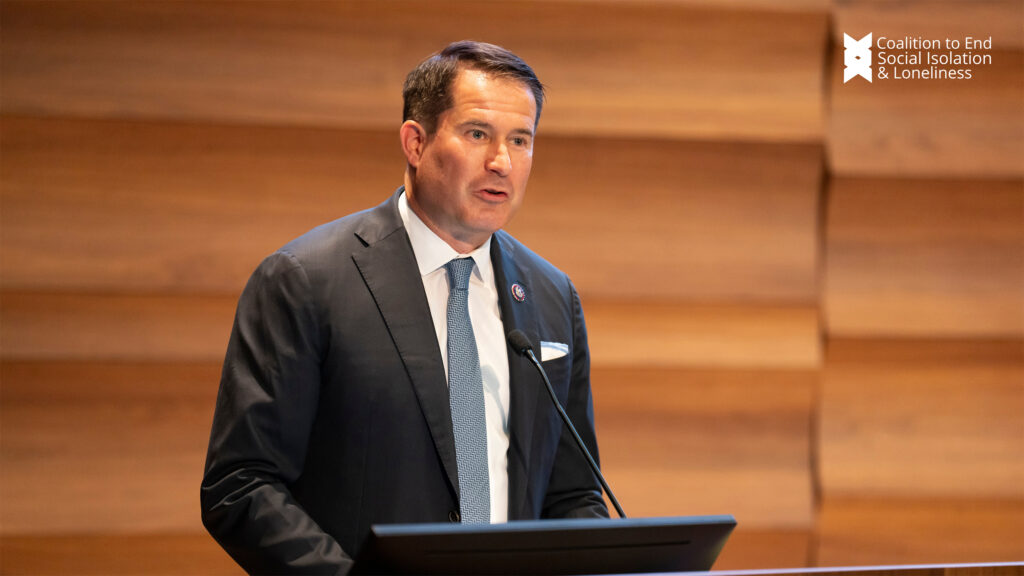Four policies that could reduce loneliness in the U.S.
The U.S. is facing a growing loneliness epidemic. Here’s how we might begin to address it.

Key Takeaways:
- One in three adults report feeling lonely, underscoring the growing loneliness and isolation epidemic affecting the United States, according to the American Psychiatric Association.
- Experts in the field point to solutions including improving research on loneliness and investing in more public, community spaces.
- Ultimately, the leaders said, it will take a collaborative effort to address the crisis—from the policymakers creating new laws to individuals spreading kindness in their communities.
Leaders of the U.S. Army Special Forces—also known as the Green Berets, one of the most elite branches of the military—view mental wellness as the differentiator between being just average and being the “best of the best,” said Patrick J. Kennedy, a former Rhode Island congressman. Troops who prioritize their mental health excel.
What if, Kennedy asked, all Americans—and our society as whole—valued mental health in the same way? This was just one of the questions raised at the third annual Global Loneliness Awareness Summit, which addressed the health impacts of the growing loneliness epidemic and the need for collaborative action. The event was held at the Johns Hopkins University Bloomberg Center.
A National Epidemic
U.S. Surgeon General Vivek Murthy declared a national loneliness and isolation epidemic in the U.S. last year. One in three adults say they have experienced loneliness at least once a week over the past year, according to a poll by the American Psychiatric Association, and 10% of adults reported feeling lonely every day.
Chronic loneliness can affect the mental and physical health of people at any age and from any background. Loneliness is linked to higher rates of depression, anxiety, and suicide, and it can increase risks for heart disease, stroke, and death, according to the U.S. Centers for Disease Control and Prevention (CDC). The risk for premature death from social isolation has been compared to the equivalent of smoking up to 15 cigarettes a day.
Aside from health concerns, loneliness also has an impact on our economy—with one estimate suggesting that loneliness is costing companies $154 billion a year due to absenteeism, according to Cigna. Loneliness even poses threats to our democracy, as people feel less connected to their communities and the greater good, said Sen. Maggie Hassan (D-NH), one of the speakers at the summit.

Despite these challenges, those who spoke at the event said they are hopeful for solutions. Here are four ways policymakers can address the loneliness crisis:
- Standardize the definition of loneliness.
Murthy calls for additional research to better understand the causes and effects of loneliness and how to improve social connection in his “Six Pillars to Advance Social Connection.” To do so, researchers need a standard definition of loneliness to precisely study and understand its impact and inform policy decisions, Hassan said.
- Encourage intergenerational care.
Older adults are particularly vulnerable to experiencing loneliness and social isolation, according to the CDC. Nearly 25% of adults age 65 and older are considered socially isolated—as they’re more likely to live alone or experience the loss of family members and friends. Facilitating opportunities for connection for older adults is one way to address the heightened risk of loneliness.
Similarly, young adults also face heightened risk of loneliness.
“We need to promote intergenerational care, such as encouraging child-care and early-learning programs to be placed at long-term care facilities for seniors,” Hassan said. “We’ve already seen the benefits of sparking connection between generations and bringing communities closer together all across the country.”
- Invest in green spaces.
From zoning laws to infrastructure plans, state and local governments play a critical role in building connections in cities and towns across the U.S. Cities should be designed for humans, not cars, U.S. Rep. Seth Moulton (D-MA) said at the summit. Moulton said he’s working on new legislation that would invest in infrastructure to create environments that foster connection throughout communities, such as more cafés, community centers, and green spaces.

“I’m not saying that we can just legislate away all loneliness,” Moulton said. “But we can provide the tools for every American to build happy, connected, and resilient lives to confront what we know to be the main causes of loneliness and isolation in America today.”
- Improve public safety.
To encourage more Americans to get out and engage with their communities, speakers at the event called for increasing public safety so people feel comfortable engaging in activities in their cities and towns.
The bipartisan Safer Communities Act was passed in 2022 to address this issue, and the Biden administration recently announced a new rule that expands firearm background checks under the act. The original act improved children and family mental health services and gun control laws.
Overall, the assembled experts called for a collective effort to address the loneliness crisis—from enacting new laws to addressing the negative effects of technology and social media to individuals showing kindness to strangers.
“If you want to address social isolation,” Kennedy said, “first and foremost, you have to give people a sense of purpose and self-worth—and no matter what walk of life you’re in, you can do that.”